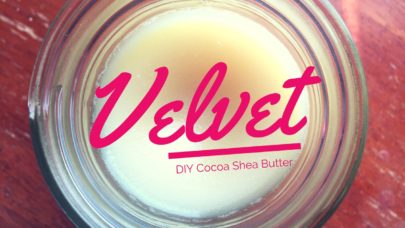Hello Greatness!
Amla is the best all around plant for stimulating hair growth.
There. I said it.
I love amla treatments because they give me the full benefits of a vitamin-rich clay wash with fewer ingredients and less mess.
Plus, this ayurvedic allstar always leaves my hair super curly and more defined. This is a great side effect of amla because my 4C thicky thickness doesn’t have much of a curl pattern on her own.

Team Lavish wanted something that we could put in and wash out quickly. I wanted something that was cleansing and deeply conditioning, since school is back in session and summer protective styles are coming down.
Enter our Glossy Amla Coconut Wash!

Ingredient Spotlight: Amla
Amla (Phyllanthus emblica) is a powerful antioxidant that:
- helps adjust and balance immune function (helpful in fighting cancer)
- reduces fever and inflammation
- relieves pain
- its a great source of vitamin c, amino acids, and minerals
- it’s cytoprotective (protects the cells in your body)
- enhances memory and improves concentration1
Vitamins & Minerals in Amla - vitamin c, vitamin a, vitamin b6, omega-3 fatty acids, omega-6 fatty acids, calcium, phosphorus, potasssium, and manganese

Ayurvedic Medicine
Amla is a fruit that belongs to the Euphorbiaceae family (a large family of flowering plants). Believed to be the first tree created in the universe, amla has deep medicinal and sacred roots.2
In their clinical review of amla’s effectiveness as a treatment in medicine and dentistry, researchers Grover et al 2015 classified alma’s healing ayurvedic properties:
Ayurvedic classifications of the fruit:
1. Rasa (taste): Sour and astringent are the most dominant, but the fruit has five tastes, including sweet, bitter, and pungent
2. Veerya (nature): Cooling
3. Vipaka (taste developed through digestion): Sweet
4. Guna (qualities): Light, dry
5. Doshas (effect on humors): [Calms] all three doshas: Vata, kapha, pitta, but it’s especially effective for pitta1
Amla is enjoyed as a juice, in smoothies, spices, chutneys, jellies, jams, preserves, curries, pickles, and as fresh fruit. Amla-berries can help you lose weight, treat an ulcer, and put insomnia to sleep.
Other alma benefits:
- natural hair strengthener
- simulates hair growth
- healing tonic for the skin
- treats jaundice
- naturally thickens hair
- enhances natural glow and luster (hair and skin)
- helps the body absorb calcium which strengthens bones, hair, skin, teeth, and nails
- helps relieve the symptoms of anxiety
- strengthens hair roots
- high in carotene and iron
- prevents dandruff
- nourishes the brain
- reduces hair loss
- improves mental functioning
- helps prevent greying of hair
- increases vitality
- promotes healthier hair
- helps define natural curls


- 1/2 cup coconut milk
- 2 tablespoons amla powder
- 2 tablespoons rhassoul clay
- 3 tablespoons raw honey
- 1 teaspoon vitamin e
- 1 teaspoon avocado oil
- 5 drops lemon essential oil
- 5 drops lavender essential oil
- 1/2 tablespoon marshmallow root powder
- Mix all of your dry ingredients with a fork or small whisk.
- Add milk and honey and blend on medium speed for up to a minutes, or until well blended (no lumps).
- Pour in vitamin e and oils.
- Pour into 8 oz bottle with top.
- Apply to wet hair in sections. Work through to the ends. Leave in for up to 20 minutes.
- Rinse out thoroughly and follow up with your favorite leave-in conditioner.
- The avocado oil works as a butter in this recipe so a little goes a long way. Cocoa butter, rhassoul, and coconut milk just go together, so if you don't have avocado oil on hand -- try cocoa butter (1 teaspoon) as an alternative!
Look for amla by it’s other names:
- amlika (Hindu)
- nelli (Tamil)
- amla-berries
- gooseberries
- amalki
- amalaki, amalaka (Sanskrit translation: ‘small tree,’ ‘the sustainer’ or ‘the fruit where the goddess resides’)2
- dhatri (Sanskrit translation: “nursing mother”)2
- neelikkai
- prunus cerasifera
- emblic myrobalan
- myrobalan
- earth mother
Where I Got The Goods…
These are the places I buy my ingredients from and there are lots of other natural, organic retailers. If  you know of great places you’d like to add, post them in the comments below and I’ll add them to the list.
you know of great places you’d like to add, post them in the comments below and I’ll add them to the list.
- Amla Powder for hair (don’t eat this one), Mountain Rose Herbs; for edible recipes I use Terrasoul Superfoods Amla, Amazon.com
- Avocado Oil, Brambleberry
- Rhassoul Clay, Mountain Rose Herbs
- Coconut Milk (store bought also works; check the ingredients on it — make sure it’s organic with no added sugars or fake coconut)
- Cute Bottle with Pump, BrambleBerry
- Lavender Essential Oil, Iherb.com
- Lemon Essential Oil, Amazon.com
- Raw Honey (bought locally but I like this one too)
You can buy amla as a powder, extract, juice, oil or tea.
To experience amla’s edible benefits, try my Pineapple Mango Smoothie:
1 cup fresh or frozen pineapple, 1/2 of a fresh, peeled mango (or 1/4 cup frozen mango), 1/2 cup coconut milk, 1 teaspoon amla powder, handful of ice, optional: 1/4 teaspoon raw agave syrup to sweeten. Add all of the ingredients to a high-speed blender. Blend for up to 1 minute or until it’s super smooth. Pour & sip!
Like this recipe, get over 100 more!
References
-
1. Grover, H. S., Deswal, H., Singh, Y., & Bhardwaj, A. (2015). Therapeutic effects of amla in medicine and dentistry: A review. Journal Of Oral Research & Review, 7(2), 65-68. doi:10.4103/2249-4987.172498
2. Krishna, N. & (May 2014). Sacred plants of India. Penguin Books






